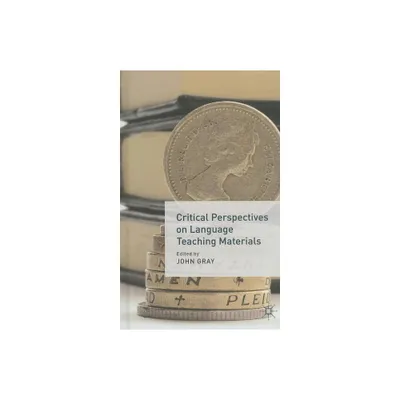Home
Critical Perspectives on Teaching the Multilingual University
Loading Inventory...
Barnes and Noble
Critical Perspectives on Teaching the Multilingual University
Current price: $180.00


Barnes and Noble
Critical Perspectives on Teaching the Multilingual University
Current price: $180.00
Loading Inventory...
Size: Hardcover
*Product Information may vary - to confirm product availability, pricing, and additional information please contact Barnes and Noble
This book critically and reflectively engages with the ‘Language Problem’ in the contemporary multilingual university. It paints a complex picture of the lived multilingual realities of teachers and students in universities across geographies such as Pakistan, Timor-Leste, South Korea, Bangladesh, Somaliland, Afghanistan, Fiji, Colombia, and the UK (including Northern Ireland) and focuses on three overall analytic themes: language and colonial epistemologies, language policies and practices, and language and research.
/ Globalisation, global knowledge economy, and neoliberal governance has significantly impacted higher education by elevating colonial languages, particularly English, to a global academic lingua franca. Universities now collaborate and compete globally, with English emerging as the dominant language for education and research. The imposition, or uncritical adoption, of English poses profound political, cultural, and epistemic challenges for those who have to use the language in everyday university administration, research, and teaching and also intertwines with issues of race, gender, coloniality, and social class. This volume addresses this as higher education’s multifaceted Language Problem which requires interdisciplinary collaboration and critical debate, and ultimately aims towards understanding multilingualism in higher education across both the Global North and South.
The contributions to this book continue to remind us of the coloniality of language and of the linguistic stratification that governs epistemological structures and power relations in the academy. It will be of interest to scholars, researchers, and practitioners of higher education, applied linguistics, education policy and politics, and sociology of education. This book was originally published as a special issue of the journal
Teaching in Higher Education.
/ Globalisation, global knowledge economy, and neoliberal governance has significantly impacted higher education by elevating colonial languages, particularly English, to a global academic lingua franca. Universities now collaborate and compete globally, with English emerging as the dominant language for education and research. The imposition, or uncritical adoption, of English poses profound political, cultural, and epistemic challenges for those who have to use the language in everyday university administration, research, and teaching and also intertwines with issues of race, gender, coloniality, and social class. This volume addresses this as higher education’s multifaceted Language Problem which requires interdisciplinary collaboration and critical debate, and ultimately aims towards understanding multilingualism in higher education across both the Global North and South.
The contributions to this book continue to remind us of the coloniality of language and of the linguistic stratification that governs epistemological structures and power relations in the academy. It will be of interest to scholars, researchers, and practitioners of higher education, applied linguistics, education policy and politics, and sociology of education. This book was originally published as a special issue of the journal
Teaching in Higher Education.


















